One of the most challenging components of starting and running a business is staying on track financially. As if things weren’t already bad enough, the global pandemic has added a new layer of complexity that even the most resilient firms have had to navigate. However, startups can do a few critical things to keep on top of their money.
Every penny a person owns is valuable, and the prospect of losing it all naturally makes them fearful of even trying to establish a business. As a result, they miss out on the opportunity even before starting. The real task is that effective financial management is the key to avoiding the economic disaster that all entrepreneurs fear.
Here are 20 tips for founders to help manage startup finances:
1. Manage Cash Flow Using A Digital Spreadsheet
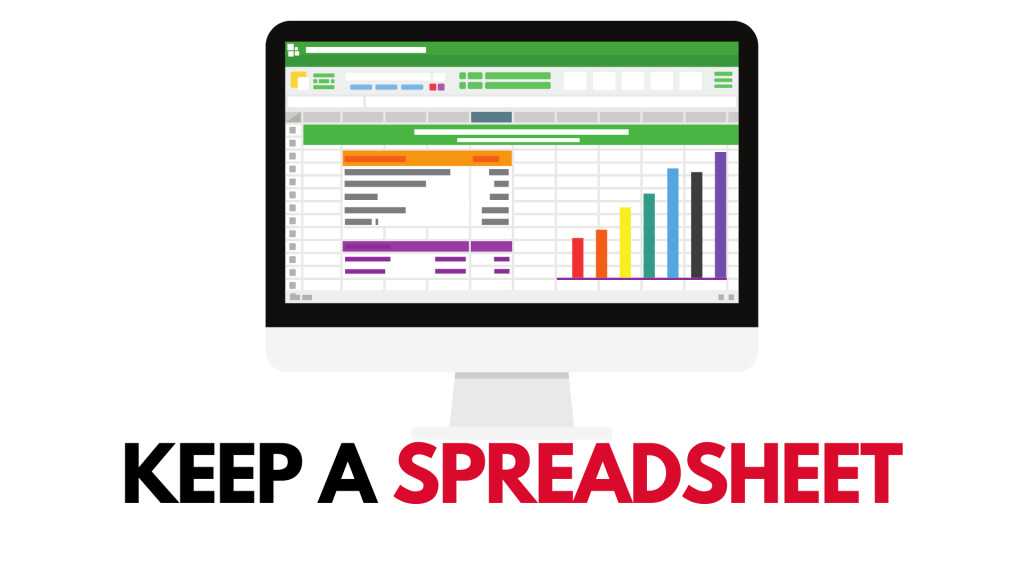
For managing the cash flow of new business, you must have your payment terms specified briefly and quickly, regardless of how tiny your firm is. Even if it is difficult in today’s business world, you must regularly consider your monetary transactions’ financial and legal aspects and track all capital transfers.
Companies worldwide use a variety of tools for cash flow planning and analysis. A good cash flow plan must take into account income and expenses and the timing of issued invoices, payrolls, and other payments with the due date of received invoices. Because the quantity of money collected varies on a more or less frequent basis, the correct technology is required to allow the company’s management to move quickly.
Spreadsheet programs like Excel enable you to keep track of recurring information such as advance payments or salary payments in the amount expected and keeping track of how your firm is doing will assist you in determining which sections work best and in which sector you should focus your resources. You’ll also need to analyze this information to create a reasonable budget and evaluate your progress to see if you’re sticking to it.
2. Avoid Credit

Another important tip for managing money as a small business is setting financial goals to avoid credit.
Making financial goals will help you construct a profitable portfolio that will benefit you today and in the future. Whether you have an established firm in a competitive industry or are developing a concept into a startup, making the best use of your cash is critical to your success.
The cost of credit is high during the early stages of a company’s development. So proper You’ll save money and reach profitability sooner just by setting up your interest core at the lowest possible price.
3. Monitoring Expenses
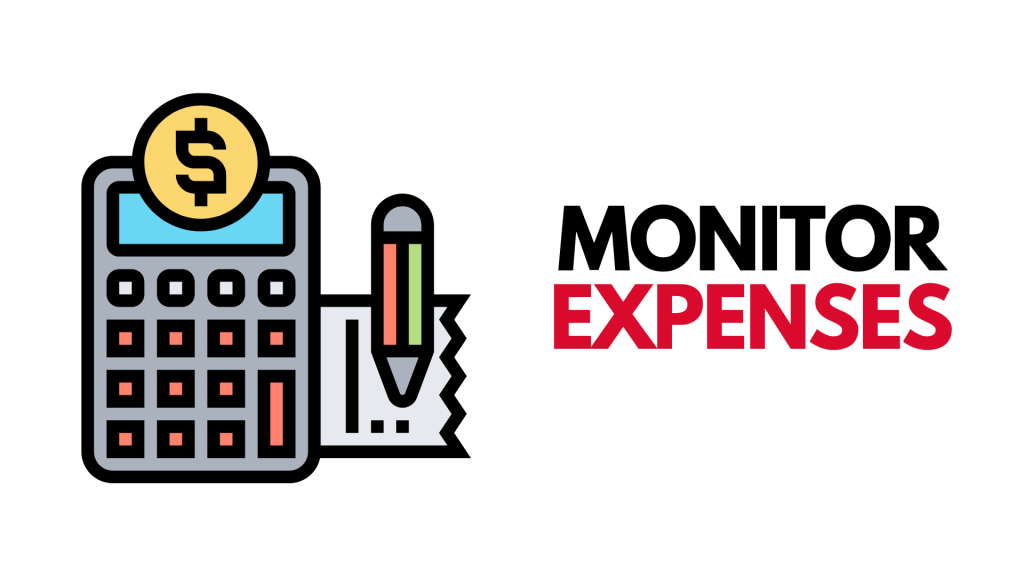
Saving money is vital to work on once your firm has become more steady and mature. It’s critical to correctly manage your assets, whether you’re decreasing costs or putting earnings aside.
For example, consider outsourcing specific jobs to save salary costs or acquiring used equipment or furniture to save money. Consider whether it makes sense to reinvest profits in the business, keep aside funds for unexpected expenses, or show investors and lenders robust gains. Whether you intend to focus on expansion, borrow money, or sell your company, your strategy will differ.
4. Review KPIs Regularly
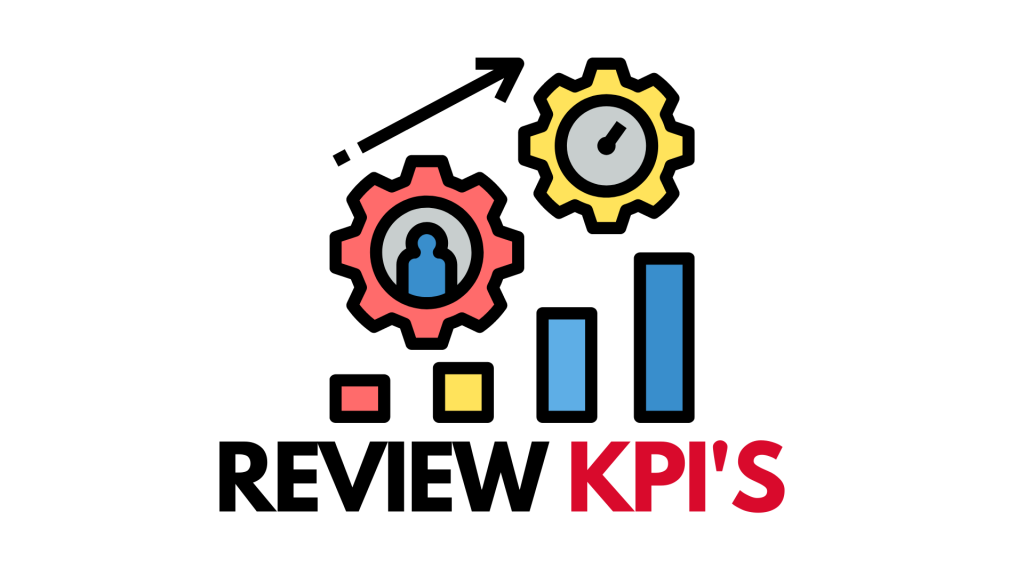
Some firm and sector-specific KPIs are put as representation in the outputs of a startup’s financial model. KPIs are critical measurements for your business, as their name suggests.
KPIs are important not only for investors but also for you as a business owner. These indicators are used to track your company’s performance, experiment with different acquisition channels, business models, and pricing structures, and keep both you and co-founders laser-focused on the goals you set.
Other indicators may be necessary for your company or sector as well. Conduct some web research, consider your company’s most critical drivers, and pick the most important ones to you and possible investors. Include this as well in your financial model.
5. Use Debt

Knowing what causes contribute to the problem when aspects are aligned to the problem is likely to emerge, and putting preemptive plans in place for scenarios when cash troubles develop are part of more intelligent financial planning.
You can also create prediction models based on previous collection efforts to predict better when a cash flow problem will arise. Every business will better bargain with your creditors and prioritize payments to stay cash positive if you prepare ahead. Another option is to build up a fund to cover financial shortfalls, either internally by separating your portion of revenue to money to cover cash flow issues or externally by negotiating for a credit line with a bank to cover shortfalls.
However, keep in mind that lines of credit aren’t the same as regular loans and often come with higher interest rates. These loans will likely serve as a temporary bridge until cash inflows. Also, outflows remain equalized more often.
6. Categorize Expenses
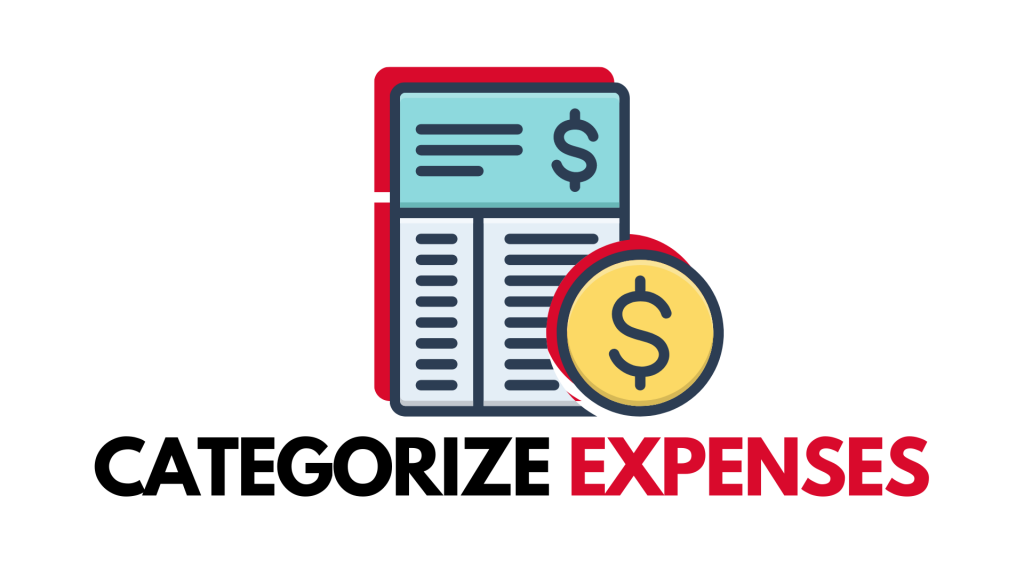
You’ll need to create a commercial bank account once you’ve decided on a business name and registered it. You should maintain separate personal and commercial bank accounts per expense type.
Maintaining a distinction between these two accounts will result in a more precise accounting for tax reasons after the fiscal year. It would also remove the cash shortages in businesses caused by personal withdrawals. Separate your personal and business loans and credit cards rigorously, and don’t utilize them for your money or vice versa. Moreover, business accounts have their benefits, which are:
- Preparation for tax season
- Offers legal protection
- Makes more professional
7. Utilize Experts

The expertise of another individual is your most reliable financial planning instrument. Help from a professional with financial statements, spending evaluation, and profit forecasts can be financially beneficial in the long run. Potential resources include consultants, financial advisors, your accountant, a CPA, and a bookkeeper. Many business owners cannot handle their finances due to understanding.
You value your time and money, so you want to make sure they’re well spent. It would be beneficial if you applied the same mindset to your company’s financial health. Rushing your company’s growth potential can only hurt it in the long term.
Instead, devote a significant amount of time, attention, and possibly even money to preserving the financial well-being of your enterprise.
8. Maintain Good Emergency Fund

Following your understanding of the need for experts to make your small business finances more reliable, your next step is to create an emergency fund to ensure your company’s success. Month after month, businesses do not provide steady sales.
Thus, it’s a good idea to save aside funds for your businesses during the off-season to ensure a consistent stream of revenue. All successful entrepreneurs must generate a share of income in months of high sales to help pay off-month expenses while creating an emergency fund.
9. Acquire Paying Customers
There is no business without customers. The sooner you find out how to gain consumers and scale, the more likely your firm will succeed. Once you’ve identified the various acquisition channels, you may focus on optimizing them to reduce your expenditures.

Set specific goals for yourself and your campaign to make things easy for yourself. Even experiencing bad nightmares can assist you in figuring out if your strategies are working or not. After you’ve tried a few different channels, you’ll be able to compare individual results to one another.
Because it’s hard to try every prospective acquisition channel at first, both in terms of time and money, concentrate on the most profitable options. You’ll have the financial capability to investigate other media once you’ve effectively scaled those.
10. Research Your Funding Needs

While some entrepreneurs bootstrap their enterprises, others seek outside investment to expand them. If you choose this way, you’ll have to think about many things, including how much money you need, the loan’s repayment terms, your credit score, and when you need the money. Not every type of finance will be appropriate for your company, so figure out exactly what you need before deciding.
Small business owners have a variety of funding options accessible to them, including:
- Grants
- Business lines of credit
- Peer-to-Peer lending
- Loans from bank
- Invoice factoring
11. Get Insured

As a business owner, you may despise paying for insurance, but you may need it in the end. You must research what is best for your business and personal requirements to establish a lucrative portfolio and manage small business finances. Running a startup company requires some of the same policies other small companies carry, but the tech sector comes with its unique risks and business needs. Thus, insurance is suitable for startups.
Insurance offers much-needed financial protection for your dependents, such as children or elderly parents. You should gradually expand their insurance coverage so that all dependents are covered.
12. Separating Expenses With Its Kind
The next step in managing small business finances is investing in technology and grasping all of the phrases associated with your firm to keep your top spot in the market. It is often preferable to maintain your finances and accounts using internet software and build an online presence to attract more new and returning customers.

Paying taxes, understanding your business’s financial condition, and developing budgets are all possible using HR management and payroll software. To use professional software, large corporations often hire an accountant. Similarly, using technology, you can reduce expenses for engaging an accountant.
Thanks to technological advancements and network opportunities, anyone can understand the basics of payroll and bookkeeping and guarantee their records are in order. All you need to do now is invest in a high-quality bookkeeping program.
13. Establish Financial Goals

It’s essential to break down financial objectives into manageable and quantifiable chunks.
Monthly, monthly, or even daily income objectives keep you on track and allow you to make the required modifications for continuous development. You can also set milestones along the way to keep track of your progress, giving you a lot of smaller goals to keep track of your dreams. Small accomplishments can provide you with the confidence you need to continue your business path.
14. Reduce Overhead

You should sit down and make a budget for your company that is competitive. If hiring a nice office space is out of your budget, try sharing office space or going virtual instead. You’ll be able to accomplish more with less money and operate on a more competitive budget due to this.
Cutting materials or labor when a company has to decrease costs to be viable might backfire. Low morale and poor quality products might cost your firm more money in the long run. The indirect expenses of overhead, on the other hand, might save your company hundreds, if not thousands, of dollars each month.
15. Manage Tax Payment

Managing your business would be exceedingly difficult if you do not understand and prepare your taxes. Entrepreneurs frequently avoid personal involvement in tax matters, opting to pay whatever their accountants advise. You can lower the number of company liabilities, save money, and increase efficiency if you get ahead of the game and prepare beforehand.
Whatever business you’re in, make sure you’re concentrating on the “must-haves” rather than the “nice-to-haves.” Managing your company’s finances from the start helps ensure long-term success.
16. Grow In A Niche

As an entrepreneur, you’re already devoting a significant amount of time and effort to maximizing your company’s potential. So there’s nothing vital for you to make things even more difficult for yourself. All you have to do is focus on your area; you must concentrate only on what you are excellent at, what you know, and what you care about most.
You’ll find that success comes far more quickly when you do this. Focusing on topics that aren’t in your niche can rapidly lead to failure. Thus, one of the most essential things you can do today remains on what you do best. Other areas where you lack expertise, such as customer service and administrative chores, might be delegated or outsourced.
17. Ensuring The Inventory Data To Be Accurate
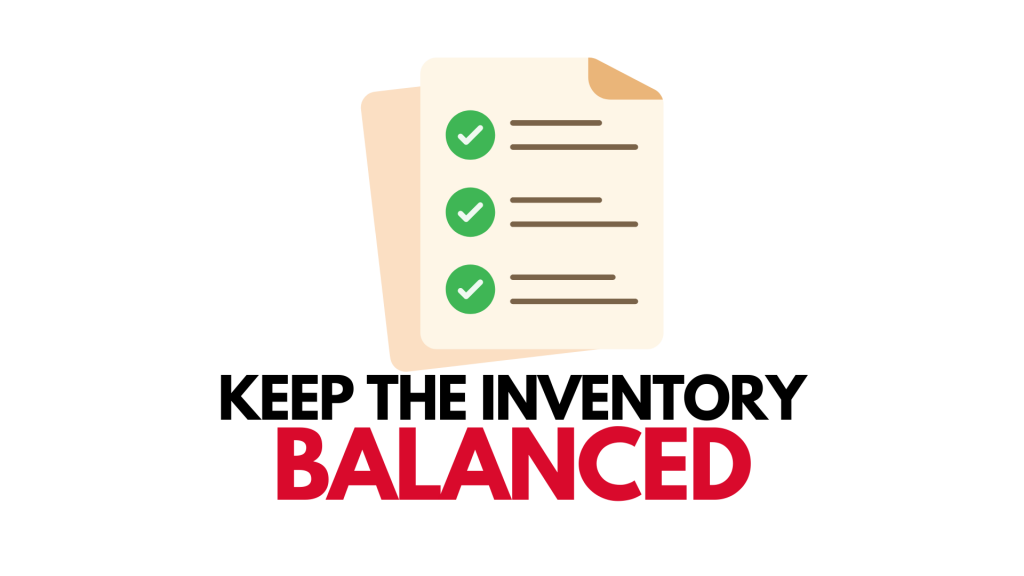
The company needs correct inventory data to produce financial accounts. The income statement must calculate the cost of goods sold (COGS) and the inventory value on hand for the balance sheet.
A physical list is kept track of by physically counting things regularly or combining counts with an inventory management system that may automatically modify the figures as sales occur if coupled with the point-of-sale system and accounting software. Inventory management software makes tracking inventory considerably easier and ensures that the data is more reliable.
As a result, more excellent inventory management leads to improved financial performance, as measured by gross and operational profits. According to the inventory classification system, raw materials, partially made items, and completed products are the three forms of inventory that impact financial performance. Correlation levels differ based on the inventory type and the financial performance benchmark.
18. Compare Financial Results To Projected Values

The company needs correct inventory data to produce financial accounts. The income statement must calculate the cost of goods sold. Financial projections assist businesses in estimating future income and expenses to determine whether they require financing or should make capital investments. Business executives use financial projections to assess cash flow and decide when to adjust pricing or production plans.
When a corporation seeks a loan or finance or is the target of an acquisition, forecasts give critical financial information to external parties. Pro-forma financial statements, projected income statements, balance sheets, and cash flow statements should be designed using these forecasts. Financial modeling approaches make projections to answer issues posed by lenders, investors, and other company stakeholders.
19. Plan Investments

The organization can determine the optimal moment for significant expenditures and develop the credit to meet the cost by constantly analyzing expenses and income. When a company needs additional money, business credit cards can help it create a credit history to have a greater chance of qualifying for financings (and the best financing conditions), such as lines of credit and loans.
A company’s overall financial health must secure these funding sources. According to the survey, 45 percent of businesses with excellent financial health got loans or credit cards from a bank, compared to only 3 percent of enterprises with poor or below-average financial health. Credit cards often provide benefits for businesses, such as business incentives or travel rewards.
20. Remain Optimistic Also Prepare For The Worst
It is hard to predict the future of business initially, so It is vital to remain positive in anything you undertake since it motivates you to venture farther into the unknown. It might be difficult to anticipate if your firm will grow into something significant or fail right from the start.

So have a positive attitude, but be prepared for the worst. Please don’t rush to change jobs or lose your principal source of income until your company expands to the point where it can take over that position.
There is no such thing as too much planning for a potential disaster.
Regardless of your planning, awful things can happen, and they often do when you least expect them. As a result, it’s a good idea to store personal and corporate reserves in an emergency.
